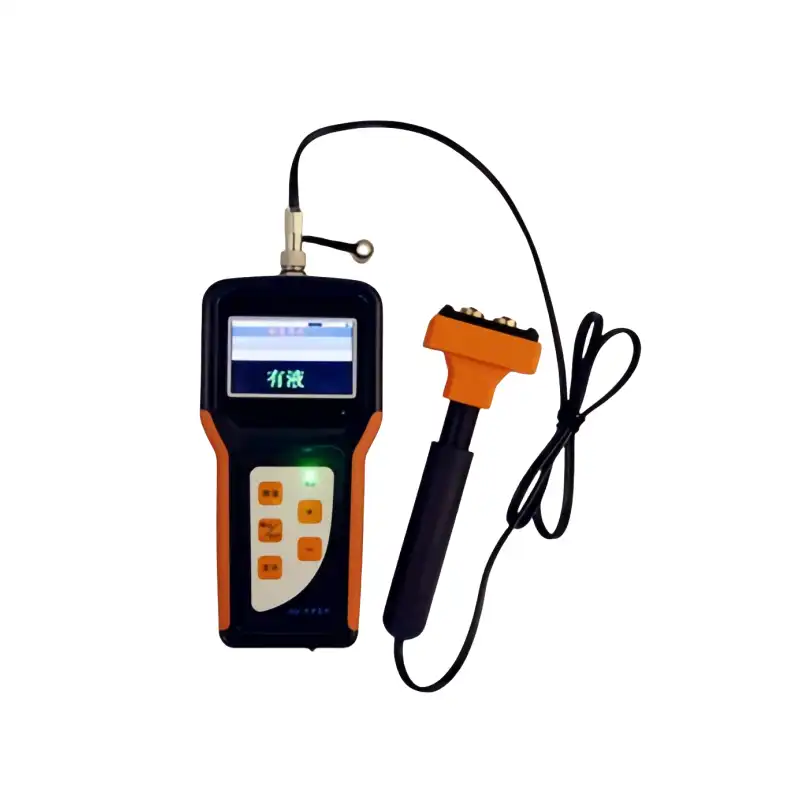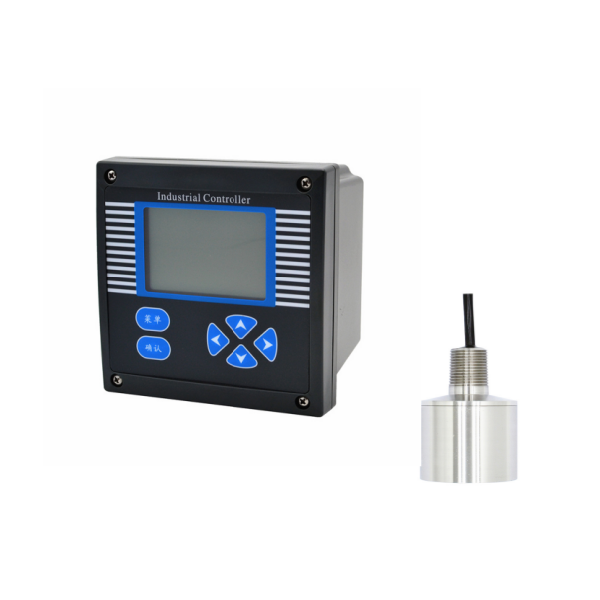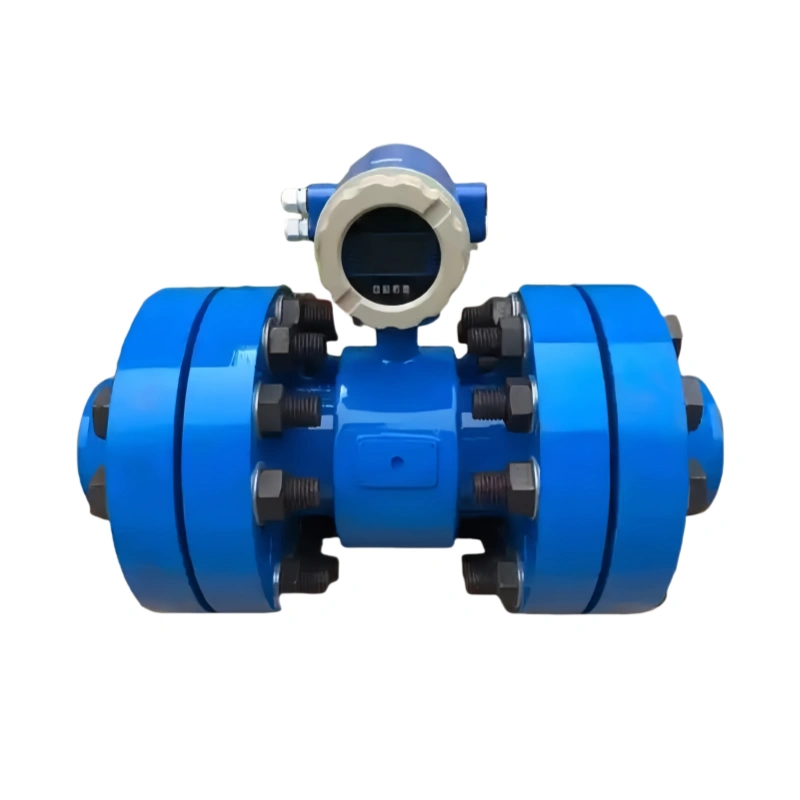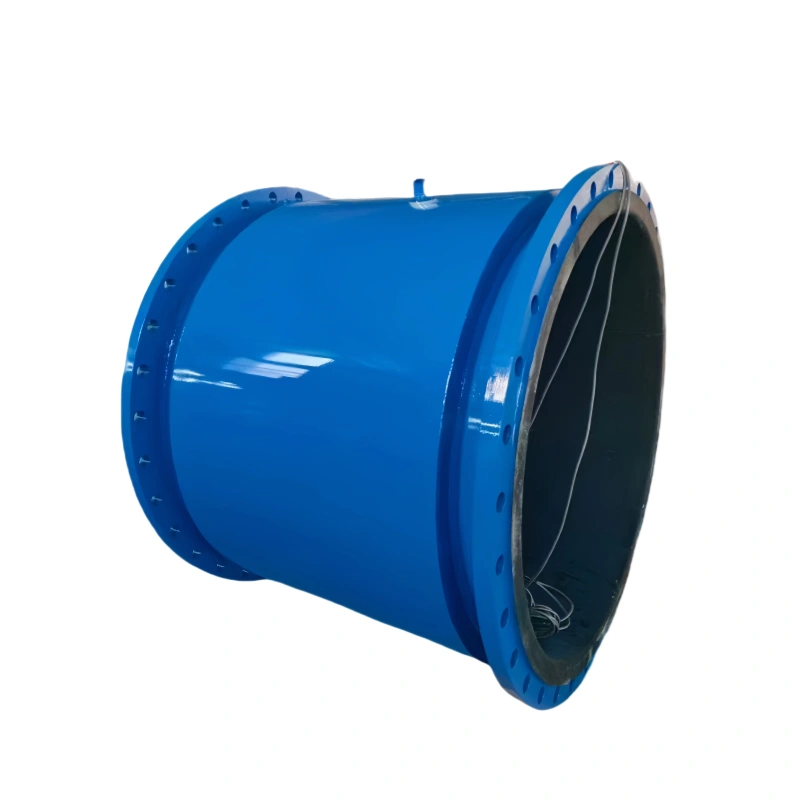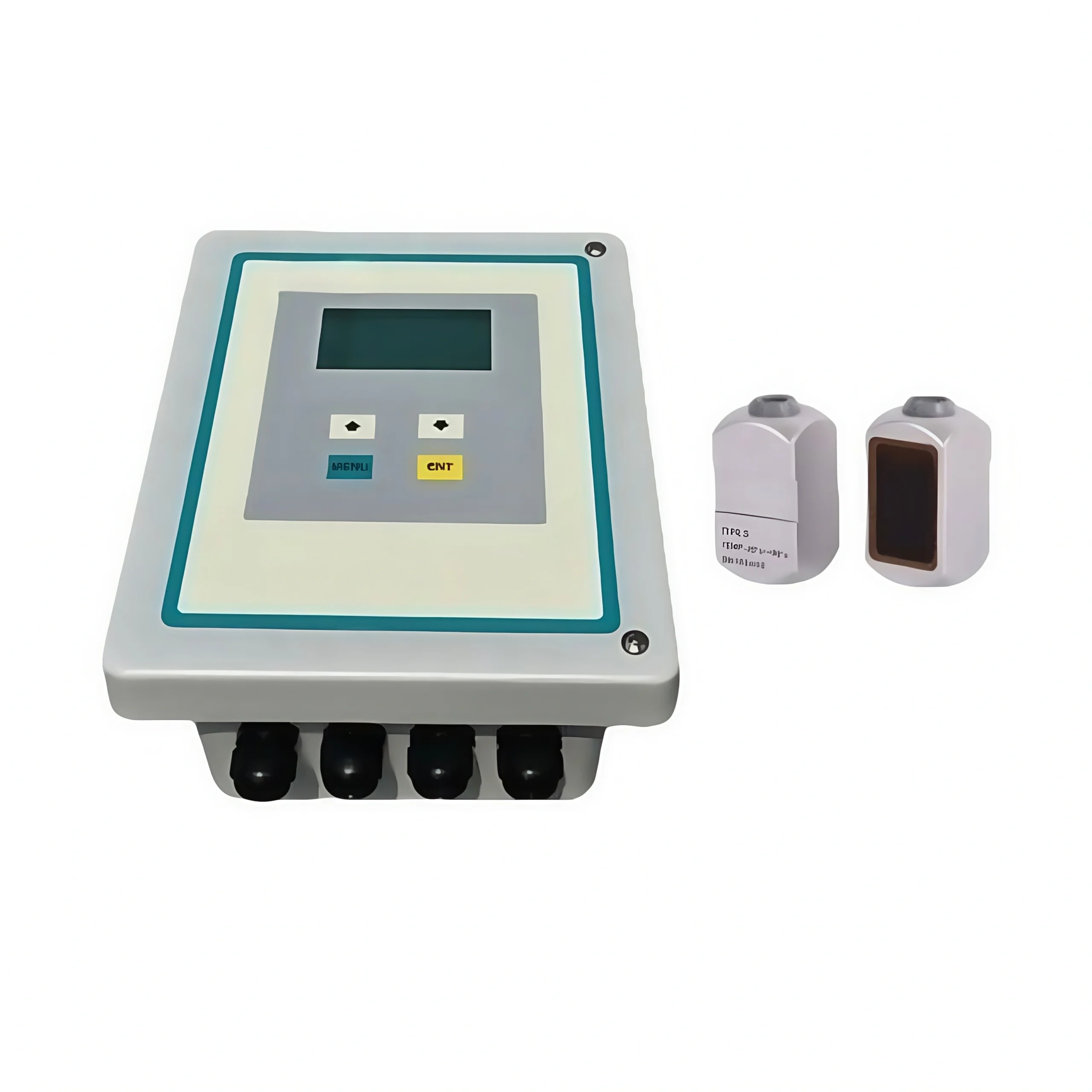What Is a Mass Flow Meter?
A mass flow meter is a device that accurately measures the mass flow of a fluid through a pipe. It measures the mass flowing through a device per unit time, not just the volume. It is less affected by temperature and pressure changes than other flow meters. It is considered an important tool in industries such as chemical processing and pharmaceuticals.
In industrial production, the reliability and accuracy of mass flow detection are crucial because material balance, heat balance, storage, economic accounting, etc. require mass, not volume. Because they can derive the concentration and mass of the fluid based on density measurement. These meters are suitable for a variety of fluids and have high accuracy. For example, mud and other viscous non-conductive fluids.

How Do Industrial Mass Flow Meters Work?
The mass flow meter is based on the principle of Coriolis force. There are two parallel flow tubes inside the sensor, with a drive coil installed in the middle and detection coils installed at both ends. When the excitation voltage provided by the transmitter is applied to the drive coil, the vibrating tube vibrates in a reciprocating cycle.
The Coriolis principle is the effect of moving rotating mass on an object. When the fluid flows in a rotating tube, it will generate a force on the tube wall. This was discovered by Coriolis when he was studying turbines in 1832 and is called the Coriolis force. In 1977, the founder of Micro Motion in the United States developed the world’s first practical mass flow meter based on this principle.
Coriolis flowmeters, direct flow meters using the Coriolis principle, measure the flow rate of fluids and can be used for any gas or liquid. They allow the fluid to flow directly through the meter, thereby supporting higher flow rates and reducing pressure losses.
Types of Industrial Mass Flow Meters

1. Direct mass flowmeter: directly outputs mass flow, such as Coriolis mass flowmeter.
- Coriolis mass flowmeter can directly measure mass flow, density and temperature;
- Large measurement range: Coriolis meter can measure DN3~DN250;
- Coriolis mass flowmeter can measure conventional fluids, as well as non-Newtonian fluids, various slurries, high viscosity fluids, suspensions, etc.;
2. Thermal mass flowmeter: an instrument that uses the principle of thermal diffusion to measure gas flow
- It has a wide range ratio and can measure gas flow rates up to 120Nm/s and as low as 0.1Nm/s.
- Gas flow measurement does not require temperature and pressure compensation, and the measurement is convenient and accurate.
- The power supply can be selected from AC220V, DC24V or AC220V, DC24V dual power supply.
3. Compensated mass flow meter: detects the volume flow, temperature and pressure of the fluid at the same time, and calculates the mass flow.
- Directly measures mass
- Suitable for measuring compressible fluids such as gas and steam
- Can continuously monitor the fluid condition and input this data into the calculation to determine the accurate mass flow
4. Inductive mass flowmeters, volumetric mass flowmeters, ultrasonic mass flowmeters, and magnetic flowmeters are also common types of mass flowmeters.

Benefits and Limitations of Mass Flow Meters
Benefits
Mass flow meters are able to provide high accuracy and repeatability, ensuring precise measurement and consistent results. They usually have a large turndown ratio, allowing them to accurately measure a wide range of flow rates.
- Direct mass flow measurement
Mass flow meters provide direct measurement of mass flow. This is very important in applications where quality is the main concern.
- High accuracy
Mass flow meters provide high accuracy and repeatability. Ensuring precise measurement and consistent results.
- Real-time measurement
Mass flow meters can provide real-time measurement. Flow can be precisely controlled when used with a control valve or pump.
- Easy to integrate
Mass flow meters can be easily integrated with control systems. This enables automation, data acquisition, and process optimization.
- Unaffected by pressure, temperature, and viscosity
Mass flow meters provide absolute measurement and are not affected by changes in pressure, temperature, viscosity, or density.
- Can measure multiple parameters
Mass flow meters can measure multiple parameters simultaneously, such as volume flow, temperature, and density.
- Easy to install, clean, and maintain
Mass flow meters are easy to install, clean, and maintain, and do not require inlet and outlet sections.
- Can measure various media

Limitations of mass flow meters
Mass flow meters can have very high ranges and high accuracy, but they also have serious limitations. Environmental variables and errors in readings, calculations, and adjustments can lead to lost efficiency, equipment damage, and ultimately, reduced accuracy.
Potential problems with mass flow meters include:
- Coriolis flow meters are expensive compared to other flow meters. They are also not suitable for larger pipe sizes.
- Thermal mass flow meters are affected by condensation of moisture (in saturated gases) on the temperature detector, which can cause the thermometer to read low and can cause corrosion.
- Thermal mass flow meters are affected by the buildup of coatings or materials on the sensor, which inhibits heat transfer and causes the meter to read low.
- Thermal mass flow meters are affected by changes in specific heat caused by changes in gas composition.
Sino-Inst’s mass flow meters utilize innovative technology to provide exceptional accuracy and repeatability. Wherever you need to accurately measure mass flow, whether it is gas or liquid. Sino-Inst has the right mass flow meter technology for your application.
Please feel free to contact our sales engineers!




